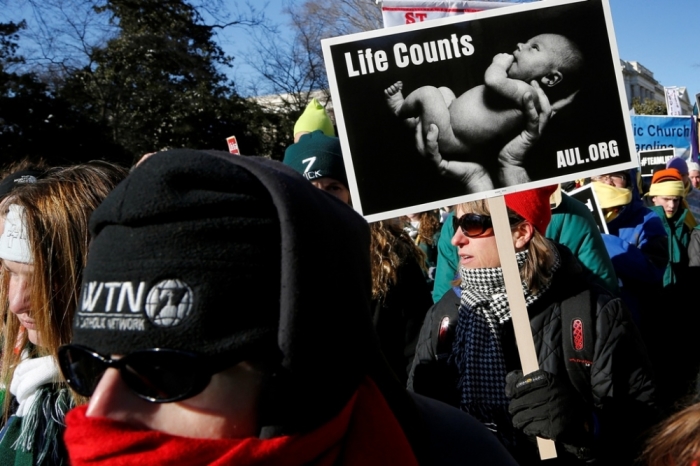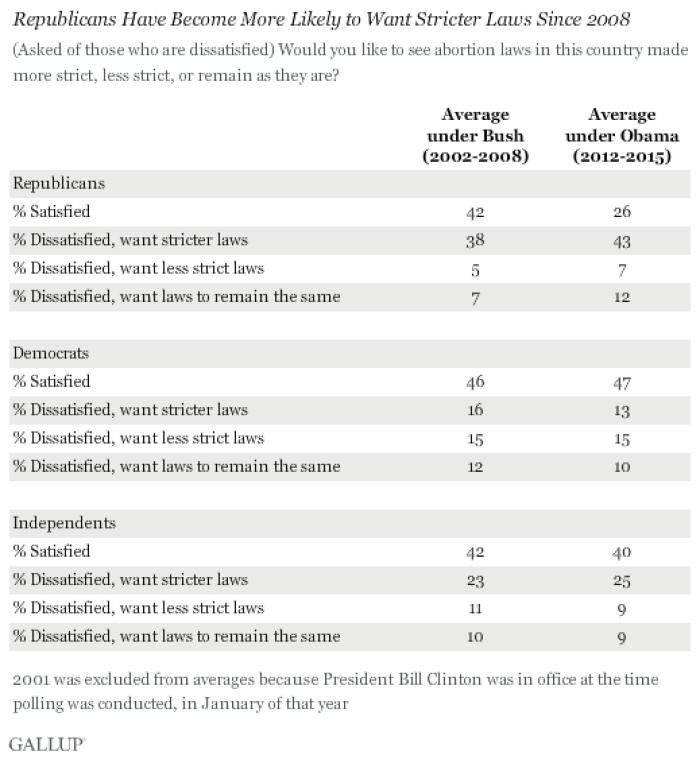Gallup: More Americans Want Stricter Abortion Laws

There is growing dissatisfaction with current abortion laws in the United States, according to a Gallup survey, and of those who are dissatisfied, twice as many want stricter laws as those who want less strict laws.
Only 34 percent of Americans, the lowest since Gallup began asking the question, are satisfied with current abortion policies.
Almost half, 48 percent, answered that they are dissatisfied with the current policies. Of those, 24 percent said they want stricter abortion laws and 12 percent said current laws should be less strict. The remaining want the laws to stay the same even though they are dissatisfied with those laws.

The increased dissatisfaction is due to changing attitudes among Republicans. Compared to the average during the George W. Bush presidency (2002 to 2008), satisfaction with current abortion policy among Republicans has dropped 16 percentage points compared to the previous three year average (2012 to today), from 42 percent to 26 percent.
Republicans who were dissatisfied and wanted stricter abortion laws increased five percentage points, from 38 to 43 percent.
Democrats and independents, by contrast, have remained about the same and within the margin of error. The average satisfaction since 2012 was 47 percent for Democrats and 40 percent for independents.
Among dissatisfied independents, those who want stricter laws outnumber those who want less strict laws, 25 to nine percent. Dissatisfied Democrats are about evenly divided between those who want stricter laws (13 percent) and those who want less strict laws (15 percent).
The survey of 804 adults was conducted on Jan. 5-8, which was before the U.S. House of Representatives passed the No Taxpayer Funding for Abortion Act on January 22, the same day as the March for Life.
The House was also scheduled to vote that day on the Pain-Capable Unborn Child Protection Act to ban abortions after 20-weeks gestation, a period at which a fetus is known to feel pain, but that vote was delayed due to a controversy over a rape reporting provision.
The margin of error for the full sample is plus or minus four percentage points.




























